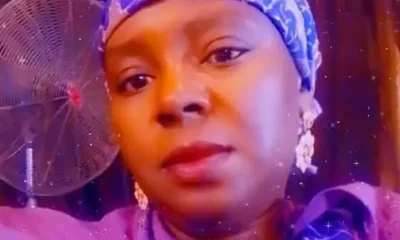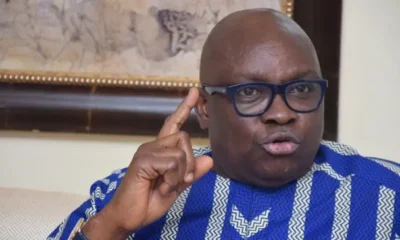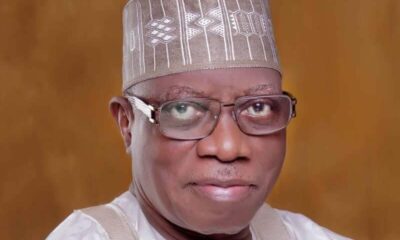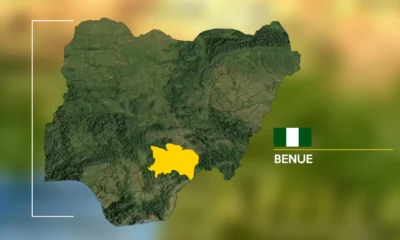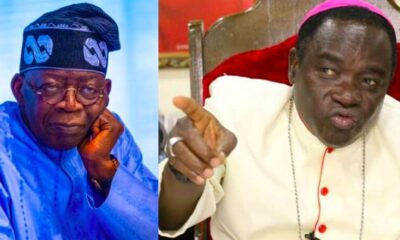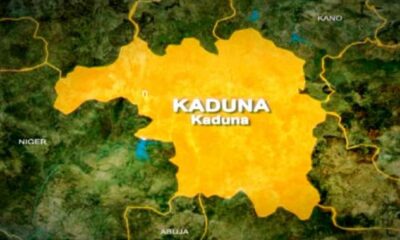Uncategorized
Genocide: Nigerian Muslims Also Victims – Vatican Cardinal
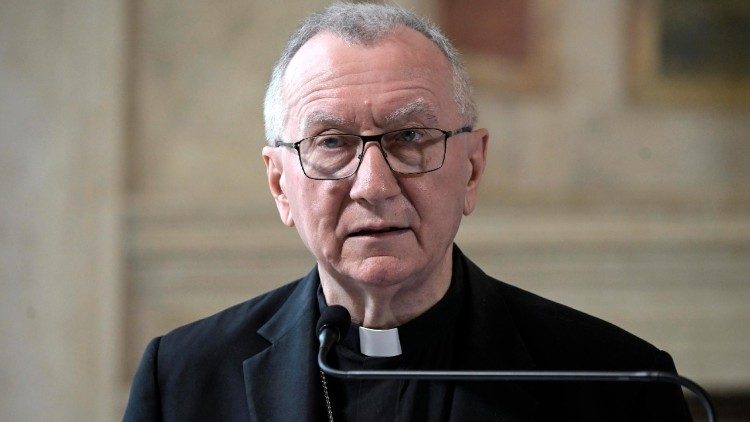
Vatican Secretary of State, Cardinal Pietro Parolin, has weighed into the ongoing conversation of alleged genocide against Nigerian Christians.
The Christian genocide narrative gained traction after the address of Vice President Kashim Shettima at the United Nations General Assembly in New York last month.
Shettima had said the situation in Gaza was “heart-wrenching” and demanded an immediate ceasefire that will birth Palestinians independence and a home of their own on territories already recognised by the UN and international law.
He had said a two-state solution remained the most viable path to peace and warned that continued neglect of international law only fuels propaganda and undermines global stability.
After that episode, voices from the West started echoing genocide, with one Eric Prince, founder of a private security company in America, calling on the Vatican, the Pope, President Donald Trump, and prominent Christian leaders from all over the world to “fund and support” a private Christian army to “protect the Christian community in Nigeria”.
But weighing into the conversation, Parolin warned against framing of the security crisis in Nigeria as a genocide targeting Christians.
Parolin, who spoke in Rome during the presentation of a new report on global religious freedom by Aid to the Church in Need (ACN), said Nigerian Muslims were also victims of worsening insecurity.
“It is not a religious conflict. Much of the violence stems from social causes such as land disputes between herders and farmers in the North-Central region.
“We should also recognise that many Muslims in Nigeria are themselves victims of this same intolerance. These are extremist groups that make no distinctions in pursuing their goals. They use violence against anyone they see as an opponent,” he said.
Earlier, Bishop Matthew Hassan Kukah, the Catholic Bishop of Sokoto Diocese, had urged the international community not to re-designate Nigeria as a “Country of Particular Concern” (CPC) over alleged religious persecution, warning that such a move could undermine ongoing efforts to foster peace and interfaith dialogue.
Speaking at the launch of the Aid to the Church in Need (ACIN) 2025 World Report on Religious Freedom in the World held at the Augustinianum Hall, Vatican City, on Tuesday, Bishop Kukah acknowledged the country’s deep-seated challenges but insisted that Nigeria should be supported — not punished — as it works to overcome religious violence and national disunity.
The report documents a global decline in religious freedom, with more than 5.4 billion people living in countries where such rights are restricted.
It identifies authoritarianism, religious extremism, ethno-religious nationalism, and organised crime as key drivers of persecution across the world.
Kukah said that while Nigeria continues to grapple with terrorism, insecurity, and ethnic tensions, the situation cannot simply be categorised as targeted persecution of Christians.
“We are not dealing with people going around wielding machetes to kill me because I am a Christian. I live and work in Sokoto, right in the womb of Islam, where collaboration between Christians and Muslims remains possible. Our lives should be defined by a better narrative,” he said.
The cleric, however, admitted that Nigeria’s security breakdown has created conditions for what he described as “genocide” in some communities, citing the federal and state governments’ failure to contain violence and protect citizens.
“Nigerians are dying unacceptable deaths across the country — not only because of their religion but also their ethnicity. We are in the cusp of a weak state with a clear lack of capacity to arrest the descent into anarchy,” Kukah said.
He described the eight years under former President Muhammadu Buhari as “the worst phase in interfaith relations,” accusing the administration of policies that alienated Christians and emboldened jihadists.
“Under Buhari, to gain power, it was more important to be a northern Muslim than to be a citizen of Nigeria,” he said.
Bishop Kukah noted that President Bola Tinubu’s administration has shown inclusiveness and goodwill through recent appointments that balance religious representation in government.
“The President and Vice President are Muslims, yet Christians have not felt alienated. The Chief of Defence Staff, the Director of DSS, and the INEC Chairman are Christians. These are confidence-building measures aimed at restoring trust among Nigerians,” he said.
Citing the Global Terrorism Index Report 2025, Kukah acknowledged a 37 percent decline in terrorist attacks in 2024 but cautioned that religious identity still plays a decisive role in violence, particularly against Christians in northern Nigeria.
He also called on the government to ensure full constitutional compliance across all states, particularly regarding the application of Sharia law in 12 northern states, which he said fuels mob justice and discrimination.
“The President should go to court to have the adoption of Sharia law declared unconstitutional. The secular state anticipated by the Constitution must be enforced,” he said.(Daily trust)
-

 Metro8 hours ago
Metro8 hours agoHow My Wife Died After Hospital Left Scissors In Her Stomach – Kano Resident
-

 Sports8 hours ago
Sports8 hours agoMorocco Vs Nigeria: Key Battles That May Decide The Game
-

 Politics21 hours ago
Politics21 hours agoFayose Queries Fubara’s 001 Stance, Says Sanwo-Olu Can’t Try Such In Lagos
-

 News6 hours ago
News6 hours agoBREAKING: Another Newswatch magazine Co-Founder is dead
-

 News21 hours ago
News21 hours agoFormer PDP Assembly Candidate, 4 Others Killed In Benue
-

 News23 hours ago
News23 hours agoWe’re still where we were when Tinubu became president — Bishop Kukah
-

 News21 hours ago
News21 hours ago20 Residents Killed, Others Abducted As Bandits Sack Communities In Kauru LGA In Kaduna
-

 News21 hours ago
News21 hours agoUS Delivers Military Supplies To Nigeria



